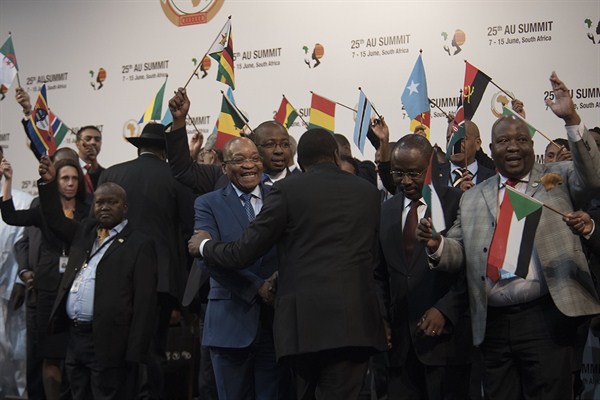At the African Union’s biannual summit in Johannesburg, South Africa, on June 13-15, the principal task was to consolidate the “Africa rising” narrative—the belief that the continent has moved onto a new and more positive political and economic trajectory over the past decade. Two of the principal themes of that narrative are good governance and democratization. While the AU’s formal declarations in this area are encouraging, several developments suggest the gap between AU theory and practice will once again be persistent. Moreover, the very structure of the organization may stand in the way of progress.
The summit was overshadowed by the controversy generated by Sudanese President Omar al-Bashir’s presence and South Africa’s failure to carry out its legal obligation to arrest him. Bashir, who was indicted by the International Criminal Court for the crime of genocide in Darfur, was allowed to leave the country despite a court order to the contrary.
Taken in isolation, the Bashir episode is disturbing enough. But when considered alongside three other developments, the cumulative effect is sufficient to cast doubt over the organization’s ability to deliver on its commitment to democratization.

